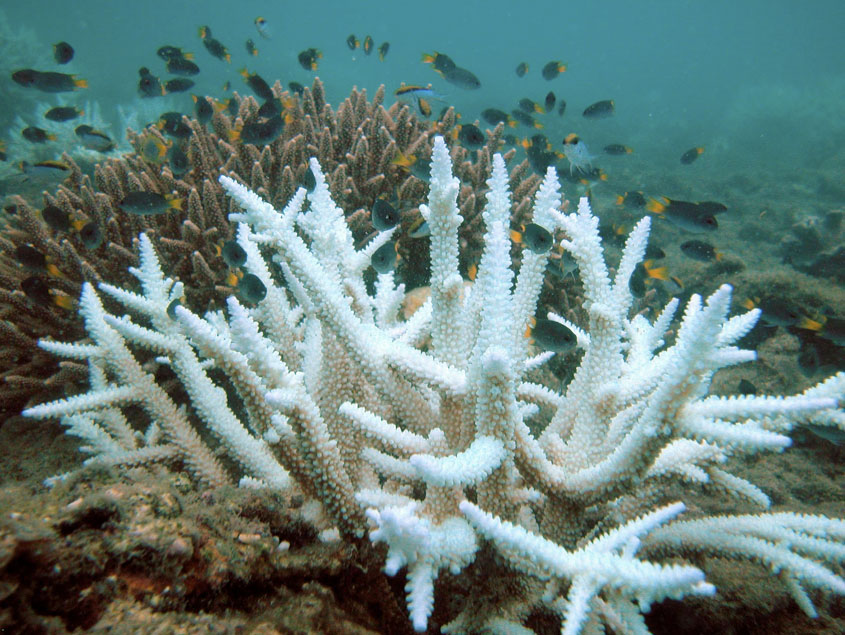|
Getting your Trinity Audio player ready...
|
Many of the world’s coral reefs have lost their color in the largest bleaching event on record. Rising ocean temperatures are affecting 77% of the coral reefs in 74 countries.
Bleaching occurs when colorful algae, known as zooxanthellae, living in coral tissue disappear. The National Oceanic and Atmospheric Administration (NOAA) has categorized the current bleaching as the fourth global bleaching event on record in April 2024 and the second in the last 10 years. According to the NOAA Coral Reef Watch’s monitoring, heat stress stretches across the Atlantic, Pacific and Indian Oceans.
Coral Reef Watch program coordinator Derek Manzello also discussed where the bleaching is taking place and the length of time it has been going on.
“From February 2023 – April 2024, significant coral bleaching has been documented in both the Northern and Southern Hemispheres of each major ocean basin,” Manzello said.
The impact of coral bleaching has numerous effects on the environment and the coral itself. The lack of algae on the coral leaves it vulnerable to disease and starvation due to the algae providing the coral with a food source through photosynthesis and by removing harmful waste. This causes them to lose their vibrant colors and leaves them stark white, eventually dying due to the high temperatures.
Aquatic animals have a mutual relationship with coral, relying on them for shelter, food and breeding grounds. Many species of fish, such as the black-backed butterfly, rely on coral as a part of their diets. The relationship between humans and coral reefs is tied to food sources and protection. Many species of aquatic animals are found near coral reefs and are used by humans for food. Reefs also provide shoreline protection by protecting land from damage caused by tropical storms.
In response to the record levels of coral bleaching, an emergency session will be held at the United Nations Convention on Biological Diversity, which is set to be held at the end of October. The director of coral reef conservation at the Wildlife Conservation Society (WCS) says this session will bring together scientists from various groups to discuss the ongoing crisis.
“The meeting will bring together the global funding community to say we’re still in the fourth bleaching event, these are happening back to back …. what are we going to do about it?” Darling said.
Climate change and rising temperatures have damaging effects on both human and animal environments, and the loss of an ecosystem has overwhelming consequences for the entire world. There are ways for people who are interested in preserving coral reefs in their current state can help. Donating to organizations such as Coral Reef Alliance and Great Barrier Reef Legacy can help support further efforts to keep the reefs healthy.








